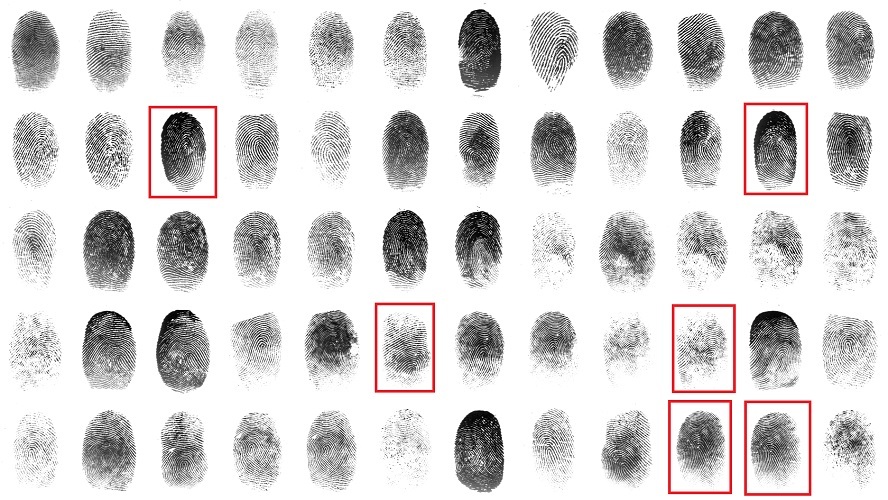Neurodactyl, a technology startup specializing in contactless fingerprint recognition technologies, launches a new product for finding errors and duplicates in large-scale biometrics databases. Distinctive feature of the product is direct all-to-all matching (all fingerprints in the database are matched against each other) using the most accurate algorithm instead of applying sophisticated search approaches, aimed to reduce huge number of matching operations, which “traditional” fingerprint recognition algorithms can’t manage technically.
Direct matching allows to find all types of errors in large-scale, nationwide databases, which have been collected for years: full duplicates, duplicates inside of one record and partially duplicated records, including records with mixed finger positions. All these errors are not possible to find technically with, for example, deduplication approach matching only fingers of a certain position, like index to index.
For a database of 10 million people and 100 million fingerprints direct all-to-all matching means performing of 5 000 000 000 000 000 matching operations. Fingerprint recognition algorithm utilized by Neurodactyl deduplication program is based on neural networks and creates very compact biometric templates – 512 bytes, which can be matched in the most rapid way (L2). Along with batch processing it allows to reach extremely fast matching speed: up to 1 billion matching operations per 1 s on CPU and 10 billion matches per 1 s on GPU. Neurodactyl deduplication program can deduplicate a database of 100 million fingerprint templates in less than 10 days, using only one computer with one high-end consumer GPU or in 2 months using one computer with one CPU.
Most importantly, the program uses most accurate and NIST tested algorithm, helping customers and users to do deduplication faster and greener: without spending a lot of time and money on hardware, its maintenance and electricity and with no compromise on deduplication quality.
Direct matching allows to find all types of errors in large-scale, nationwide databases, which have been collected for years: full duplicates, duplicates inside of one record and partially duplicated records, including records with mixed finger positions. All these errors are not possible to find technically with, for example, deduplication approach matching only fingers of a certain position, like index to index.
For a database of 10 million people and 100 million fingerprints direct all-to-all matching means performing of 5 000 000 000 000 000 matching operations. Fingerprint recognition algorithm utilized by Neurodactyl deduplication program is based on neural networks and creates very compact biometric templates – 512 bytes, which can be matched in the most rapid way (L2). Along with batch processing it allows to reach extremely fast matching speed: up to 1 billion matching operations per 1 s on CPU and 10 billion matches per 1 s on GPU. Neurodactyl deduplication program can deduplicate a database of 100 million fingerprint templates in less than 10 days, using only one computer with one high-end consumer GPU or in 2 months using one computer with one CPU.
Most importantly, the program uses most accurate and NIST tested algorithm, helping customers and users to do deduplication faster and greener: without spending a lot of time and money on hardware, its maintenance and electricity and with no compromise on deduplication quality.



